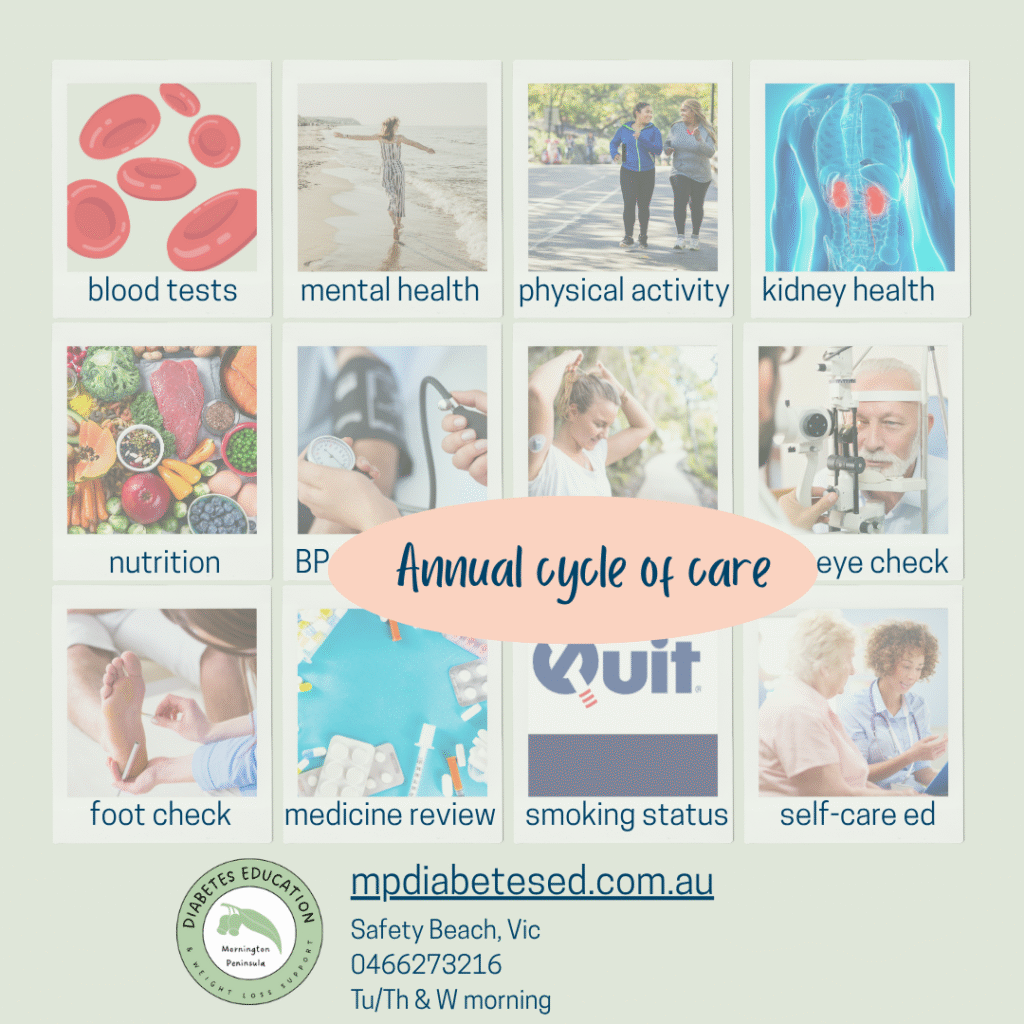What is it?
Why is it important?
Diabetes can affect many parts of the body – eyes, kidneys, heart, feet – often without clear signs at first. Regular checks help pick up changes early, prevent complications, and keep you on track.
The cycle of care is a useful guide to what is recommended to be reviewed each year as preventative care or early detection and management – blood pressure, cholesterol, eyes, feet, smoking status, weight and kidney health.
A diabetes nurse practitioner can support you along the way – helping build knowledge, confidence, and healthy habits, one step at a time.
You don’t have to do it all at once, and you don’t have to do it alone.
Reach out if you would like an appointment with your local diabetes nurse practitioner.

